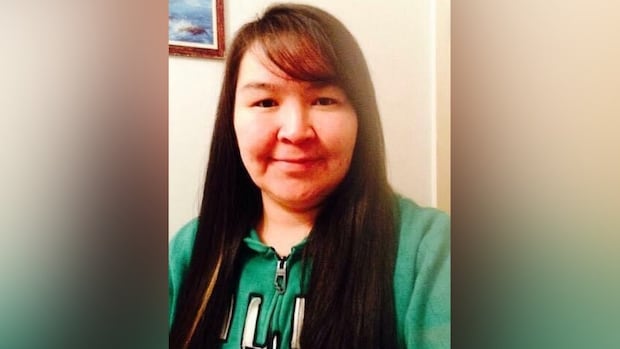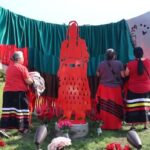ManitobaEmergency responders and health officials agree Thompson needs its own detox centre, following an inquest into the death of a First Nations woman in a northern Manitoba RCMP holding cell five years ago.’Pattern of anti-Indigenous stereotypes and bias’ seen in Celine Samuel’s ER visits weeks before death: expertOzten Shebahkeget · CBC News · Posted: Aug 29, 2025 8:47 PM EDT | Last Updated: 44 minutes agoCeline Samuel, 44, died after she was found not breathing in a cell at Thompson RCMP’s detachment in February 2020. An inquest into Samuel’s death heard that she had recently suffered a brain bleed injury and hit her head at a restaurant before RCMP detained her. (Submitted by Agnes Samuel)Emergency responders and health officials agree Thompson needs its own detox centre, following an inquest into the death of a First Nations woman in a northern Manitoba RCMP holding cell five years ago.Celine Samuel, 44, from Northlands Denesuline First Nation, died after she was found not breathing in a cell at Thompson’s RCMP detachment on the evening of Feb. 1, 2020. An autopsy found her death was caused by the combined effects of a brain bleed injury and alcohol.Samuel was detained under the Intoxicated Persons Detention Act — provincial legislation that allows police to detain someone if they are intoxicated and officers fear they are a danger to themselves or others — after she fell twice and hit her head at a fast-food restaurant hours before she died, according to a 90-page inquest report published Friday, which outlines how police and medical professionals failed to address her brain injury.The inquest was held over 11 days in Thompson and Winnipeg in 2024 and 2025, during which a provincial court judge heard testimony from 16 witnesses, including two paramedics who assessed Samuel before her detainment.The RCMP, Thompson’s fire and emergency services, the Northern Regional Health Authority and Shared Health all agreed during the inquest that there’s a need for a detox centre in the northern Manitoba city.RCMP said they’re open to working toward keeping people detained under the Intoxicated Persons Detention Act at a detox centre separate from police, rather than at the Thompson RCMP detachment, according to the report.In addition to a detox centre, the inquest counsel recommended medical clearances to rule out pre-existing health conditions before a person is lodged at Thompson RCMP’s detachment under the Intoxicated Persons Detention Act.People detained for intoxication should also be consistently monitored, re-evaluated and reassessed by a medical professional as they’re being held at the detachment, the inquest counsel recommended.An inquest — required when someone dies in police custody, unless the death is due to natural causes — does not make a finding of criminal responsibility, but is intended to determine the circumstances surrounding the death, and what can be done to prevent similar deaths.In her closing remarks, provincial court Judge Doreen Redhead agreed with a comment made by Charlene Lafreniere, the Northern Regional Health Authority’s chief Indigenous health officer, who testified that Samuel’s death was preventable.”There is recognition that additional resources and political will are required to effect change,” Redhead wrote. “All parties, including Indigenous stakeholders and organizations, and the community at large, need to work together.”11 ER visitsSamuel struggled with housing instability at the time of her death, and reportedly suffered seizures from alcohol withdrawals, according to the report.Two paramedics who assessed Samuel at the restaurant where she fell the night she died testified they believed they were called to medically clear the 44-year-old so RCMP could detain her. Both said they were unaware she’d hit her head and had recently suffered a brain bleed injury.The inquest heard that Samuel was detained by Thompson RCMP five times between Jan. 9 and Feb. 1, 2020, the inquest report says. Samuel also visited Thompson’s emergency room 11 times during that period, including a Jan. 11, 2020, visit that required her to be medevaced to the Health Sciences Centre in Winnipeg for critical care after she suffered multiple seizures.The doctor who assessed Samuel before she was flown to Winnipeg said she had a 1.1-centimetre hematoma — “a considerable amount of blood” — and suspected she would need surgery to drain blood from her brain, the report says.However, Samuel, who was receiving intravenous antibiotics for a blood infection, left the Health Sciences Centre before her treatment was done and signed a form acknowledging she was leaving against the advice of medical professionals.The Thompson doctor saw Samuel again about two weeks later, and told her not to fall or bang her head in order to avoid a brain re-bleed. However, he didn’t know she’d left the HSC before finishing treatment or her subsequent ER visits, the inquest report says.’Pattern of anti-Indigenous stereotypes’An expert who testified during the inquest said they suspected bias, systemic racism and anti-Indigenous racism in health care may have contributed to Samuel’s death in several ways.Dr. Marcia Anderson, the vice-dean of Indigenous health, social justice and anti-racism at the University of Manitoba’s health sciences faculty, testified that physicians noted Samuel’s alcohol use during each of the 11 trips she made to the ER in January 2020.Her visits to the Thompson ER “showed a pattern of anti-Indigenous stereotypes and bias,” Anderson said. “Sometimes the wording was an apparent assumption of her social issues.”There were also mentions of Samuel’s alcohol use throughout her discharge notes, which “seems to indicate that she was attending for no reason and that all of her complaints were related to alcohol use,” Anderson said.Dr. Marcia Anderson — vice-dean of Indigenous health, social justice and anti-racism at the University of Manitoba’s Rady Faculty of Health Sciences — testified that Samuel’s visits to the Thompson ER showed “a pattern of anti-Indigenous stereotypes and bias.” (John Woods/The Canadian Press)Alcohol intoxication may have also masked symptoms of a brain bleed injury, Anderson testified.”It is possible that stereotypes around Indigenous people and intoxication contributed to a finding that her symptoms were related to alcohol, without further investigation until the multiple seizures occurred.”Anderson recommended more Indigenous representation in Manitoba’s health-care system and in the support offered to Indigenous patients.The report includes dozens of recommendations for medical, police and social services, including mandatory cultural safety and anti-racism training for all medical and clinic staff in Manitoba.It also recommends online expansion of Manitoba health records and medical documentation, and a single documentation platform for all Manitoba medical health centres.As well, the report calls for a universal 911 system in Manitoba. Dialling 911 in Thompson doesn’t directly connect to EMS in Thompson. Instead, those calls go through the provincial RCMP line, and then have to be directed to the appropriate service provider, the report says.ABOUT THE AUTHORÖzten Shebahkeget is a member of Northwest Angle 33 First Nation who grew up in Winnipeg’s North End. She has been writing for CBC Manitoba since 2022. She holds an undergraduate degree in English literature and a master’s in writing.Email: ozten.shebahkeget@cbc.ca
Thursday, 5 Feb 2026
Canada – The Illusion
Search
Have an existing account?
Sign In
© 2022 Foxiz News Network. Ruby Design Company. All Rights Reserved.
You May also Like
- More News:
- history
- Standing Bear Network
- John Gonzalez
- ᐊᔭᐦᑊ ayahp — It happened
- Creation
- Beneath the Water
- Olympic gold medal
- Jim Thorpe
- type O blood
- the bringer of life
- Raven
- Wás’agi
- NoiseCat
- 'Sugarcane'
- The rivers still sing
- ᑲᓂᐸᐏᐟ ᒪᐢᑿ
- ᐅᑳᐤ okâw — We remember
- ᐊᓂᓈᐯᐃᐧᐣ aninâpêwin — Truth
- This is what it means to be human.
- Nokoma










